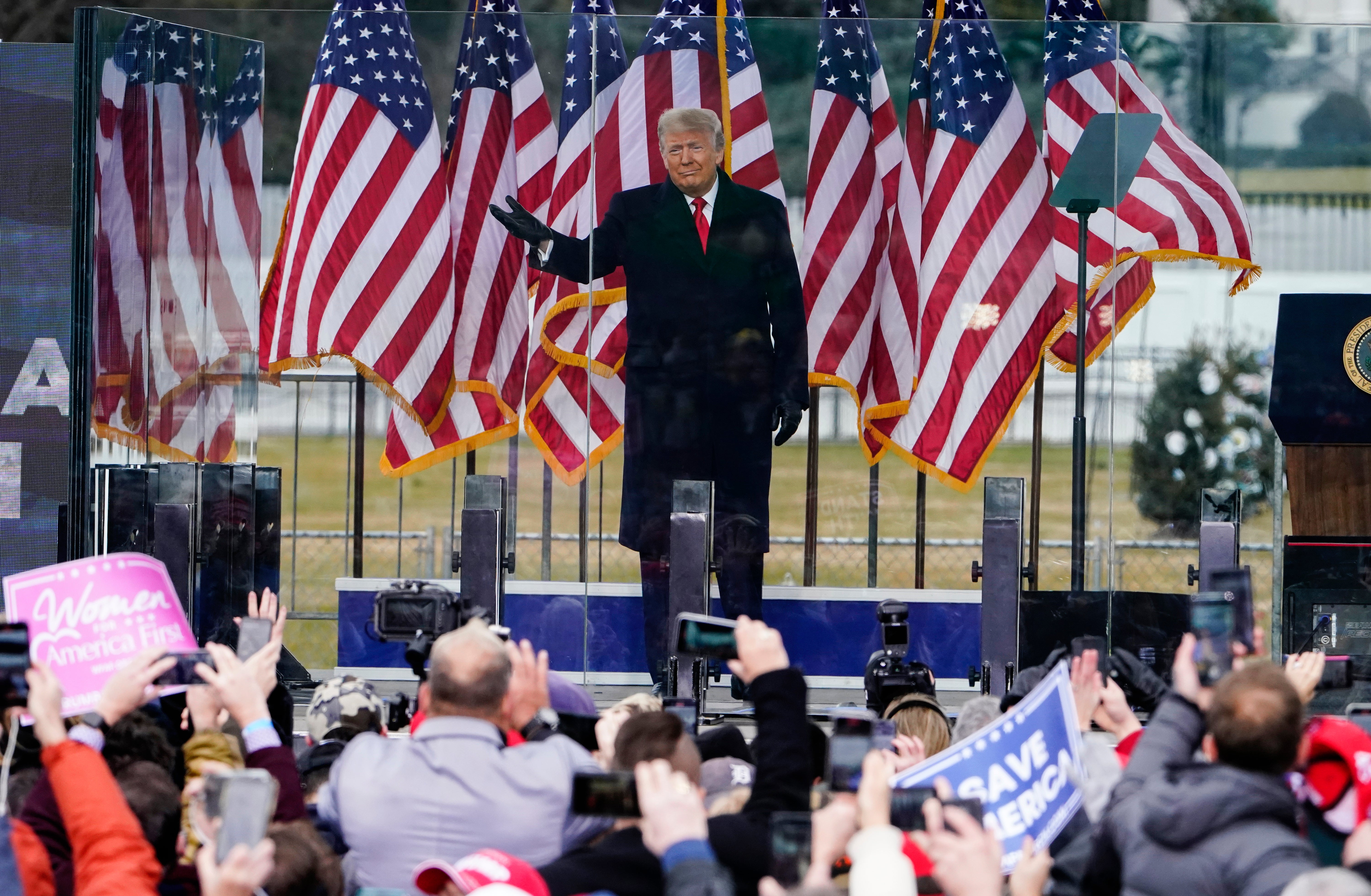Trump might have had the worst week of his post-presidency yet
The rich still operate by a different set of rules. But the mechanisms of government still can hold him accountable


As is the case with most rich people – be they OJ Simpson, Jeffrey Epstein or the bankers who caused the 2008 financial crisis that plunged the world into the Great Recession – Donald Trump is not accustomed to facing consequences. That, after all, is for poor people.
Ever since the 1970s, when the Justice Department settled a lawsuit with him and his father for alleged housing discrimination, Donald Trump knew well the one truism about America: the wealthy never truly pay for the harm that they cause. He emerged from bankruptcy in the 1990s to be broadcast into Americans’ homes as a savvy businessman. When video footage showed him bragging about sexually assaulting women, he won the presidency; when he contracted Covid in 2020, he quickly recovered despite his carelessness; and when he lost the 2020 presidential election, he convinced huge swathes of the Republican Party to parrot the Big Lie that victory was stolen from him. He is the only president to be impeached twice, but the GOP still shows slavish devotion to him.
Trump and his family have tested the limits of the ways American democracy creates exemptions for the wealthy and the privileged. But this week, it looked like his luck might finally be running out.
On Thursday, a New York court ruled that Trump, as well as his two adult children Donald Trump Jr and Ivanka Trump, have to testify in an investigation into his business practices conducted by the New York Attorney General’s office. Attorney General Letitia James’s office has already alleged that it has found that the Trump Organization and family “falsely and fraudulently valued multiple assets.” The former president’s other son, Eric, was of little help to investigators, given that he invoked his Fifth Amendment rights 500 times when they questioned him for six hours.
On Thursday, the lawyers for Trump and his children tried to assert that he was part of a “protected class” of people, which the Judge Arthur Engoron dismissed out of hand.
“He’s not being discriminated against based on race, is he? He’s not being discriminated against based on religion, is he?” the judge said during the legal proceedings, before deciding that he would have to testify. One by one, Engoron then swatted down arguments about why the former president should not testify, and specifically mentioned Eric Trump’s invocation of the Fifth Amendment, saying, “Indeed, respondent Eric Trump invoked his right against self-incrimination in response to more than 500 questions during his one-day deposition rising out of the instant proceeding.”
The ruling does not mean that Trump will not ultimately be found guilty in a court of law, nor does it mean that he will owe the state of New York any amount of money. He and his children could very well stay silent when attorneys ask them questions. But the judge’s ruling and the attorney general’s investigation are signs that the state takes allegations of misconduct seriously. Similarly, it pokes a hole in the image of Trump as a very stable genius businessman if the investigation and questioning does reveal that he inflated the value of his assets.
On Friday, the National Archives and Records Administration revealed that when it seized presidential records at Trump’s residence in Mar-a-Lago, some of the items contained classified information. The seizure of documents came after New York Times reporter Maggie Haberman revealed that White House staff occasionally found papers clogging toilets. Anyone who has ever watched the third season of The Wire knows that it’s not a good idea to take notes on a criminal conspiracy, so it’s likely that Trumpworld was just following suit (though given how Trump trash-talked Baltimore, he probably has never seen an episode himself).
There are no criminal consequences for violating the Presidential Records Act, as my colleague Andrew Feinberg has written. But it was also noted that NARA retrieved the letter Trump sent to North Korean despot Kim Jong-un, which could put him at risk of being prosecuted for mishandling classified material.
Lastly, in a final Friday afternoon news dump, the former president lost his effort to have lawsuits by former members of Congress and police officers dismissed. Judge Amit Mehta was particularly biting in his criticism of the former president, saying that “President Trump’s January 6 rally speech was akin to telling an excited mob that corn-dealers starve the poor in front of the corn-dealer’s home.” Similarly, Mehta said, “before January 6th, President Trump and his allies purposely sowed seeds of doubt about the validity of the presidential election and promoted or condoned acts of violence by the president’s followers, all as part of a scheme to overturn the November 2020 presidential election” which culminated in the bloody insurrection at the Capitol.
Again, none of this is to say Trump will face any consequences for his actions. Trump has proven to have the wherewithal to wriggle out of legal jams. He also has the wholehearted devotion of an entire political party to the extent that when someone speaks out against him, they are exiled.
Even if he were to be held accountable, Trump could easily whip up his most fanatical supporters into a bloody frenzy once more. And America doesn’t have a good record of holding racist insurrectionists accountable. But what all of these actions, taken separately, suggest is that the mechanisms of government have some capacity to try to hold Trump accountable — and it will be up to him to escape their grasp.
Join our commenting forum
Join thought-provoking conversations, follow other Independent readers and see their replies
Comments
Bookmark popover
Removed from bookmarks